On the occasion of this year’s Day of the Seafarer on June 25th, our special column is dedicated to seafarers’ wellbeing which continues to being challenged since the pandemic is not over yet while the Russia-Ukraine war has added a new dimension in the seascape.
So far, industry stakeholders have proved the power of collaboration and many remarkable welfare initiatives have been presented. However, to continuously improve the working and living conditions onboard and take the right direction towards, it is first important to identify the key elements of seafarers’ wellbeing. In that regard, we have asked many experts to provide feedback on the following question:
What are the three (3) most important elements from enhanced wellbeing onboard a ship?
Carleen Lyden Walker, Co-Founder/Executive Director, IMO Goodwill Maritime Ambassador, North American Marine Environment Protection Association (NAMEPA)
 Let me be clear before I answer: I have never sailed as a mariner on board a ship. I have sailed as a passenger, and as a company’s representative, but not as a skilled mariner. My respect for them is immense, as they face challenges unlike those we experience on land including separation, confinement and solitude. I admire their commitment to performing their critically important roles with dignity, professionalism and pride. It is necessary, therefore, to only imagine what I would require onboard to enable me to perform my tasks to my highest level. First, I would need to feel safe in my job and in my environment. As brought forward by Midshipman X, this is not a given. I would also need to know that my ship was maintained and managed in the safest possible fashion by professionals equally committed to the highest levels of competence reflecting that the company which owns the ship cares about me. I would also need connectivity, enabling me to stay in touch with family and friends as well as current events. How disorienting would it be to have no awareness of the Russian invasion of Ukraine, or the impacts of climate change on entire species? Astronauts in the International Space Station have better access to information than mariners here on Earth! It is also important to me to feel that my job is important as I deliver more than 90% of the world’s goods and energy. To feel valued by those around me for what I do as the engine of global trade
Let me be clear before I answer: I have never sailed as a mariner on board a ship. I have sailed as a passenger, and as a company’s representative, but not as a skilled mariner. My respect for them is immense, as they face challenges unlike those we experience on land including separation, confinement and solitude. I admire their commitment to performing their critically important roles with dignity, professionalism and pride. It is necessary, therefore, to only imagine what I would require onboard to enable me to perform my tasks to my highest level. First, I would need to feel safe in my job and in my environment. As brought forward by Midshipman X, this is not a given. I would also need to know that my ship was maintained and managed in the safest possible fashion by professionals equally committed to the highest levels of competence reflecting that the company which owns the ship cares about me. I would also need connectivity, enabling me to stay in touch with family and friends as well as current events. How disorienting would it be to have no awareness of the Russian invasion of Ukraine, or the impacts of climate change on entire species? Astronauts in the International Space Station have better access to information than mariners here on Earth! It is also important to me to feel that my job is important as I deliver more than 90% of the world’s goods and energy. To feel valued by those around me for what I do as the engine of global trade
Captain John Lloyd, RD MBA FNI, Chief Executive Officer, The Nautical Institute
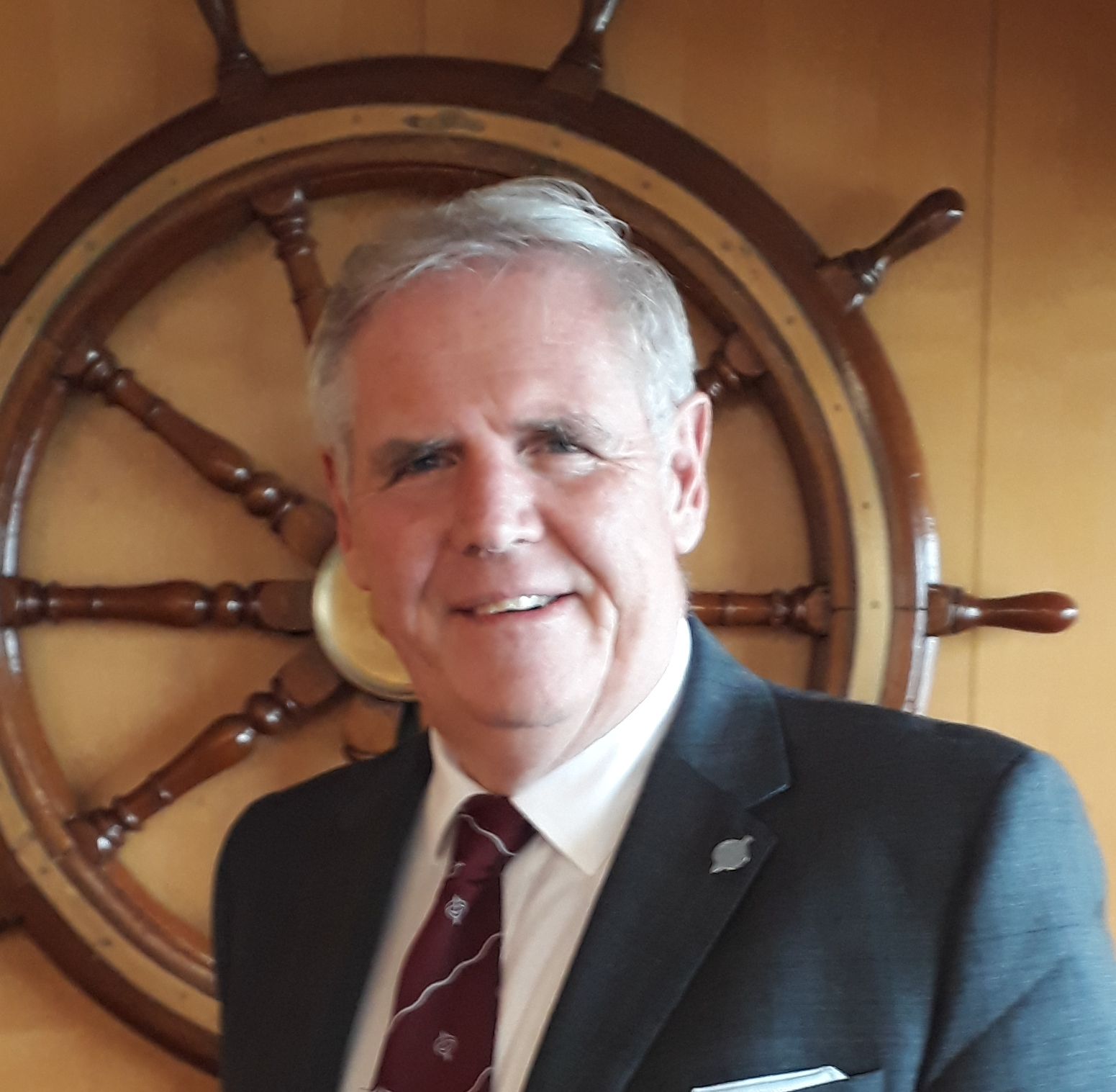 Seafarers are often characterised as being resilient and hardworking in the face of adversity and long periods of separation from friends and family. Welfare means different things to different people; probably those needs change over time and as a career develops. But every seafarer deserves to be treated with respect and in my view the most important things for enhanced well-being are all ‘brilliant basics’. Confidence that pay will be received on time and at the agreed rate of pay for the employment. Relief on-time at the end of a voyage. Everyone has plans to make and providing for repatriation at the end of an agreed voyage length is an important aspect of life at sea. Finally, respect at work extends to everyday interactions. Seafarers well-being can only exist if they are free from harassment and bullying. This is dependent upon the leadership and culture on board and needs to be fostered by every member of the crew.
Seafarers are often characterised as being resilient and hardworking in the face of adversity and long periods of separation from friends and family. Welfare means different things to different people; probably those needs change over time and as a career develops. But every seafarer deserves to be treated with respect and in my view the most important things for enhanced well-being are all ‘brilliant basics’. Confidence that pay will be received on time and at the agreed rate of pay for the employment. Relief on-time at the end of a voyage. Everyone has plans to make and providing for repatriation at the end of an agreed voyage length is an important aspect of life at sea. Finally, respect at work extends to everyday interactions. Seafarers well-being can only exist if they are free from harassment and bullying. This is dependent upon the leadership and culture on board and needs to be fostered by every member of the crew.
Sophia Bullard, Director, Crew Health Programme, Thomas Miller P&I Ltd
 I consider an Enhanced Wellbeing as being in a state of good physical and mental health. The ability to perform your duties to the best of your capacity, cope with normal stresses in life, and fully contribute to the community.
I consider an Enhanced Wellbeing as being in a state of good physical and mental health. The ability to perform your duties to the best of your capacity, cope with normal stresses in life, and fully contribute to the community.
An effective PEME ensures any existing health issues can be detected. This ensures time for the condition to be treated, and controlled, prior to employment. This means crew are less likely to be ill whilst onboard and away from comprehensive medical care.
Sufficient sleep/rest allows our bodies to repair and our brains to consolidate memories and process information. A healthy sleep pattern enhances reaction time, memory function and problem solving skills, which are, essential onboard ship. Sleep also helps our immune system and lowers risks of contracting colds and other illnesses.
Healthy eating and exercise. A balanced diet and healthy BMI are key to maintaining health. Fit crew are less likely to suffer from injuries onboard. Carrying excess weight causes a strain on the system and may lead to serious illness, e.g. hypertension, coronary heart disease and even some musculoskeletal conditions.
Simon Grainge, Chief Executive, ISWAN
 If we assume onboard working conditions are at the standard they should be, then quality of rest time is vital for hardworking crew. This means adequate shore leave and access to port welfare facilities, as well as decent facilities on board to enable crew to spend their free time doing what makes them happy. Secondly, our research has shown that social interaction with fellow crew members has a significant positive impact on seafarers’ wellbeing. Companies can make straightforward changes, both on board and within their company culture, to facilitate this. Finally, access to proper support when it is needed is key to crew wellbeing – whether through management onboard or ashore, internet access to connect with loved ones back home, or free, confidential support services.
If we assume onboard working conditions are at the standard they should be, then quality of rest time is vital for hardworking crew. This means adequate shore leave and access to port welfare facilities, as well as decent facilities on board to enable crew to spend their free time doing what makes them happy. Secondly, our research has shown that social interaction with fellow crew members has a significant positive impact on seafarers’ wellbeing. Companies can make straightforward changes, both on board and within their company culture, to facilitate this. Finally, access to proper support when it is needed is key to crew wellbeing – whether through management onboard or ashore, internet access to connect with loved ones back home, or free, confidential support services.
Gisa R. Paredes, M.A., Rpsy, Chief Operating Officer, WellAtSea
 1. A master who is willing to set aside personal biases to create an environment for change
1. A master who is willing to set aside personal biases to create an environment for change
Our qualitative research findings at WellAtSea have shown us how the attitude of the Master towards health and wellbeing programs can greatly impact the way the crew uphold this.
2. Community management as a driving force for the modern seafarer
At WellAtSea, we believe that sustainable wellbeing onboard comes with consistent communication and promotion of program activities through community management.
3. Creative play and education
The road to a higher level of wellness is hinged on our own capacity towards SELF-RESPONSIBILITY. Through further educating the seafarer through remote programs while integrating new concepts with creative play, we strengthen the mind and the body.
Captain Hari Subramaniam, Regional Head – Business Relations, The Shipowners’ Club
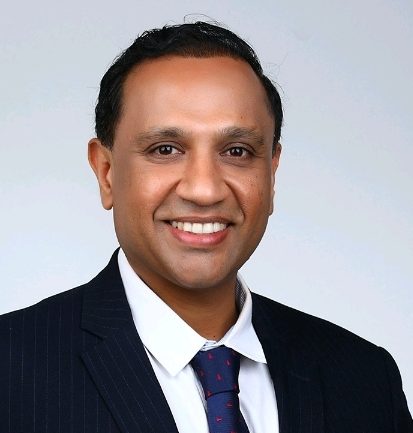 Physical health is the steppingstone to achieving mental wellbeing and it is not possible to achieve one without the other. We cannot imagine oneself to attain mental wellbeing if the physical body isn’t functioning optimally – our body is the vessel that carries us onward in the voyage of life. Secondly, the awareness that their families as well as themselves are in safe hands with initiatives such support lifelines (which can be availed by themselves and their loved ones) is another perennial factor that goes a long way in enhancing the overall wellbeing of the seafarer. Last but not the least, joint efforts by all stakeholders in the marine venture towards improving the overall marine ecosystem including shipboard environments as well as commercial arrangements to benefit the seafarer’s wellbeing is growingly evident that the industry is stepping up efforts to support our seafarer’s wellbeing. Most importantly, each and every one of us ashore can make a difference and we must walk the talk!!
Physical health is the steppingstone to achieving mental wellbeing and it is not possible to achieve one without the other. We cannot imagine oneself to attain mental wellbeing if the physical body isn’t functioning optimally – our body is the vessel that carries us onward in the voyage of life. Secondly, the awareness that their families as well as themselves are in safe hands with initiatives such support lifelines (which can be availed by themselves and their loved ones) is another perennial factor that goes a long way in enhancing the overall wellbeing of the seafarer. Last but not the least, joint efforts by all stakeholders in the marine venture towards improving the overall marine ecosystem including shipboard environments as well as commercial arrangements to benefit the seafarer’s wellbeing is growingly evident that the industry is stepping up efforts to support our seafarer’s wellbeing. Most importantly, each and every one of us ashore can make a difference and we must walk the talk!!
Johanna Karlström, loss prevention executive, ALANDIA
 1.Making sure that top managers both onboard the vessel and shoreside have the right mix of coaching and a brave leadership style. Leadership training and good recruitment processes are very important for providing the right work environment.
1.Making sure that top managers both onboard the vessel and shoreside have the right mix of coaching and a brave leadership style. Leadership training and good recruitment processes are very important for providing the right work environment.
2.A well implemented feedback system to receive communications from the crew. The crew should be able to report misconduct and provide suggestions for improvements easily. The reports should be collected methodically, reviewed carefully, and well maintained.
3.The final element is to ensure that wellbeing is a top priority in the company as a whole, so that the emphasis on wellbeing is transferred to the vessel and supported onboard. The company needs to understand the costs and risks of not prioritising wellbeing.
Tim Springett, Policy Director of Employment and Legal at the UK Chamber of Shipping

A company culture that places seafarers’ wellbeing, and their voices, at the heart of their operation is crucial. If the culture is right, the rest will follow. This culture must ensure no seafarer feels fearful to speak out, if their safety is at risk, or if they have experienced bullying or harassment. And active mental health support for crew members must be a priority. This means staying on top of people’s welfare and taking action to address the working environment and patterns before issues arise.
Dr. Maria Progoulaki, Regional Representative – Senior Consultant, Green-Jakobsen A/S
 At Green-Jakobsen, we define enhanced well-being on board a ship as nurturing an environment with a speak-up culture. We acknowledge the value of the crew’s being able, empowered, and confident to express their ideas, views, and opinions honestly and respectfully at all times, even in uncomfortable situations. That is why we believe that the three most important elements are CONTROL, INCLUSION, and APPRECIATION. On-board leaders can enhance the crew’s well-being by addressing these key interpersonal needs. When the crew are given control or responsibility, are included in discussions, and are recognised and appreciated for their contributions, they are likely to have confidence and ease to speak up and are inspired to share their thoughts, ideas, and feelings.
At Green-Jakobsen, we define enhanced well-being on board a ship as nurturing an environment with a speak-up culture. We acknowledge the value of the crew’s being able, empowered, and confident to express their ideas, views, and opinions honestly and respectfully at all times, even in uncomfortable situations. That is why we believe that the three most important elements are CONTROL, INCLUSION, and APPRECIATION. On-board leaders can enhance the crew’s well-being by addressing these key interpersonal needs. When the crew are given control or responsibility, are included in discussions, and are recognised and appreciated for their contributions, they are likely to have confidence and ease to speak up and are inspired to share their thoughts, ideas, and feelings.
Andrew Stephens, Executive Director, Sustainable Shipping Initiative
 Wellbeing onboard a ship is not just the right thing to do, it’s critical to ensuring a safe work and living environment for seafarers. Many issues need to be addressed and it’s difficult to prioritise. Staying connected to loved ones and having access to nutritious and varied food that meets our dietary needs and food preferences are things that many of us take for granted, contributing to our overall wellbeing – yet these are not always available to seafarers. Working at sea should not require a seafarer to compromise on their labour and human rights, and the industry needs to work hard to improve the way seafarers are respected and treated if it hopes to be an attractive career choice now and in the future.
Wellbeing onboard a ship is not just the right thing to do, it’s critical to ensuring a safe work and living environment for seafarers. Many issues need to be addressed and it’s difficult to prioritise. Staying connected to loved ones and having access to nutritious and varied food that meets our dietary needs and food preferences are things that many of us take for granted, contributing to our overall wellbeing – yet these are not always available to seafarers. Working at sea should not require a seafarer to compromise on their labour and human rights, and the industry needs to work hard to improve the way seafarers are respected and treated if it hopes to be an attractive career choice now and in the future.
Connie S. Gehrt, Managing Director, LL.M og Master in the Psychology of Organisations (MPO)
 The last few years have been particularly challenging for crew well-being. There is therefore still a need for a sincere commitment to provide free travel, regular shore leave, medical care and contact with family and friends at home. In addition, there is a continuing need to be reminded that poor management, failure to prioritise the needs of crew, failure to listen when concerns are raised, failure to value the professional expertise of seafarers, bullying and harassment are not the way to operate in 2022. Based on interviews with seafarers, these are some of the situations that can lead to loneliness. Creating a healthy workplace is about treating each other with respect and dignity. Just being a little more curious and trying to understand each other’s premises and perspectives are good ways to start in the daily communication whether between ship and shore or on board.
The last few years have been particularly challenging for crew well-being. There is therefore still a need for a sincere commitment to provide free travel, regular shore leave, medical care and contact with family and friends at home. In addition, there is a continuing need to be reminded that poor management, failure to prioritise the needs of crew, failure to listen when concerns are raised, failure to value the professional expertise of seafarers, bullying and harassment are not the way to operate in 2022. Based on interviews with seafarers, these are some of the situations that can lead to loneliness. Creating a healthy workplace is about treating each other with respect and dignity. Just being a little more curious and trying to understand each other’s premises and perspectives are good ways to start in the daily communication whether between ship and shore or on board.
Ben Bailey, Director of Advocacy and Regional Engagement, The Mission to Seafarers
 Seafarers’ welfare has had greater recognition during the “COVID years” than possibly at any other time. Crews have voiced what is important to them, particularly for those who have had their contracts extended and their shore leave denied. At the Mission, we have worked collaboratively to create a wide range of resources dealing with resilience, mental health and financial literacy. But more needs to be done. We must move back to a time when seafarers have access to – and are encouraged to take – their shore leave. Too many seafarers tell our chaplains that they are still not allowed to go ashore because their employer has forbidden it. With restrictions disappearing around the world, it is imperative that seafarers are afforded the same freedoms as those of us on land.
Seafarers’ welfare has had greater recognition during the “COVID years” than possibly at any other time. Crews have voiced what is important to them, particularly for those who have had their contracts extended and their shore leave denied. At the Mission, we have worked collaboratively to create a wide range of resources dealing with resilience, mental health and financial literacy. But more needs to be done. We must move back to a time when seafarers have access to – and are encouraged to take – their shore leave. Too many seafarers tell our chaplains that they are still not allowed to go ashore because their employer has forbidden it. With restrictions disappearing around the world, it is imperative that seafarers are afforded the same freedoms as those of us on land.
Dr. Maria Carrera, Research Associate at the World Maritime University (WMU) in Malmö, Sweden
 Enhanced wellbeing is connected with improving the skills that individuals have to cope with the normal and unexpected stresses of life, but also with enabling a working environment that make individuals feel safe, protected, and cared for. A caring work culture is essential in the maritime industry to promote seafarers’ wellbeing during and outside disturbances, so it becomes the way we do things around here. This caring work culture should build on seafarer’s insights and experiences and promote as top priorities 1) a safe environment, free of both physical and psychosocial hazards, 2) a protective environment, free of any kind of harassment, and 3) a caring environment, in which the seafarer’s physical, mental and social health is boosted.
Enhanced wellbeing is connected with improving the skills that individuals have to cope with the normal and unexpected stresses of life, but also with enabling a working environment that make individuals feel safe, protected, and cared for. A caring work culture is essential in the maritime industry to promote seafarers’ wellbeing during and outside disturbances, so it becomes the way we do things around here. This caring work culture should build on seafarer’s insights and experiences and promote as top priorities 1) a safe environment, free of both physical and psychosocial hazards, 2) a protective environment, free of any kind of harassment, and 3) a caring environment, in which the seafarer’s physical, mental and social health is boosted.
Maris Cirulis, Managing Director, Clever Point Marine
 The 3 key elements of enhancing wellbeing on board ships are people. Roughly 3 parties, which are involved in an organization’s day to day work activities: Seafarers, Operational Teams & Management. Now the profitability and safety of the company and fleet depends on their decisions, therefore each individual in an organization, not only has to feel healthy, safe and secure, but more importantly have a sense of purpose. Research shows that individuals who have a strong sense of purpose tend to have better mental health, overall well-being, and cognitive functioning. Purpose comes from a sense of self-awareness, and must be created, not found. And it’s not something written down in a companies Mission Statement, but something people experience throughout their work. So for organizations the evolution of the maritime workplace can combine technologies and enhanced service capabilities but the purpose must be clear, and in line with employee expectations.
The 3 key elements of enhancing wellbeing on board ships are people. Roughly 3 parties, which are involved in an organization’s day to day work activities: Seafarers, Operational Teams & Management. Now the profitability and safety of the company and fleet depends on their decisions, therefore each individual in an organization, not only has to feel healthy, safe and secure, but more importantly have a sense of purpose. Research shows that individuals who have a strong sense of purpose tend to have better mental health, overall well-being, and cognitive functioning. Purpose comes from a sense of self-awareness, and must be created, not found. And it’s not something written down in a companies Mission Statement, but something people experience throughout their work. So for organizations the evolution of the maritime workplace can combine technologies and enhanced service capabilities but the purpose must be clear, and in line with employee expectations.
David Tournay, Secretary, Maritime Skills Alliance
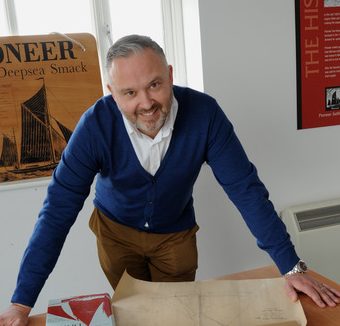 1. Ensuring that the crew feel safe both physically and mentally. Mental health welfare is gaining greater recognition in land based occupations and also needs to be acknowledged for crew at sea.
1. Ensuring that the crew feel safe both physically and mentally. Mental health welfare is gaining greater recognition in land based occupations and also needs to be acknowledged for crew at sea.
2. Building a co-operative and supportive crew; they communicate in a professional manner with each other and support the work of others
3. Ensuring that individuals can see that they have an opportunity for career progression and are given opportunities to develop their skills and capabilities;
Elisabeth Calbari (MISCP), Neuropsychologist | Executive Neuroleadership Trainer, Founder, Self Balance
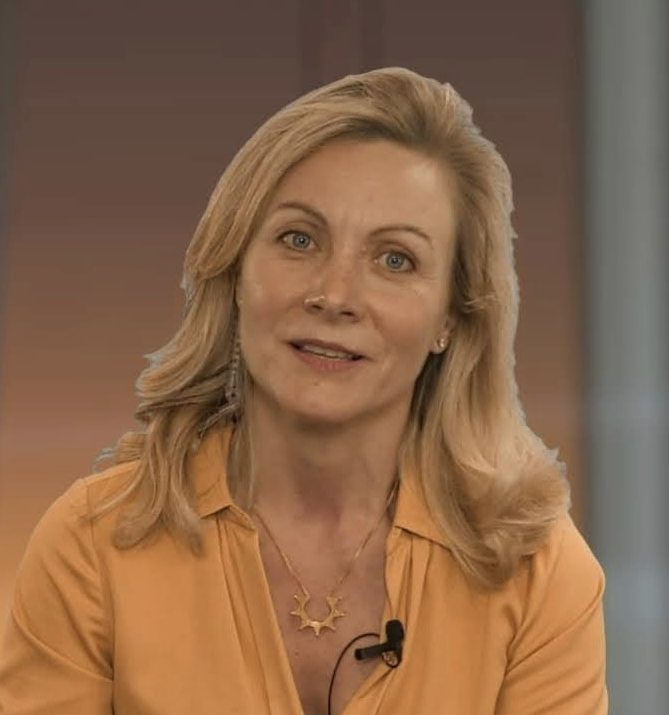 The constant flow of challenges presented before us, make it increasingly important to focus on a new mindset. One, where every mariner learns to always exhibit a strong sense of responsibility toward the vessel, the team and the sea but also, equally and emphatically, towards himself / herself. One cannot stress enough the need for such balance. With the vast knowledge that the neurosciences have amassed over the years (including a number of valuable techniques that help people gain a better understanding of themselves), professionals, both on board and ashore, can learn to exercise self control more effectively, bounce back when they feel vulnerable and exhibit their skills and expertise at their peak level whenever called upon to do so. This is what we all want from ourselves. To be ready, equipped with knowledge and a tool box to use when things require more attention, patience, focus and resilience. So, let us bring our minds together and make this happen.
The constant flow of challenges presented before us, make it increasingly important to focus on a new mindset. One, where every mariner learns to always exhibit a strong sense of responsibility toward the vessel, the team and the sea but also, equally and emphatically, towards himself / herself. One cannot stress enough the need for such balance. With the vast knowledge that the neurosciences have amassed over the years (including a number of valuable techniques that help people gain a better understanding of themselves), professionals, both on board and ashore, can learn to exercise self control more effectively, bounce back when they feel vulnerable and exhibit their skills and expertise at their peak level whenever called upon to do so. This is what we all want from ourselves. To be ready, equipped with knowledge and a tool box to use when things require more attention, patience, focus and resilience. So, let us bring our minds together and make this happen.
Captain VS Parani, HSSEQ Manager, Tufton Asset Management Ltd.
 1. Good food: The relationship between adequate nutrition and mental health is proven by research. This is a low hanging fruit (literally!) but there are companies which still remain stingy with crew victualling budgets.
1. Good food: The relationship between adequate nutrition and mental health is proven by research. This is a low hanging fruit (literally!) but there are companies which still remain stingy with crew victualling budgets.
2. Good colleagues: This doesn’t cost any money and this time, the onus is on the seafarers. It doesn’t have to be just harassment that depresses people; often the reasons are apathy and loneliness. Look out for each other and have some fun and games!
3. Good accommodation: I was once on a ship trading mostly in the tropics but had no working air-conditioning. This is not common these days with MLC but don’t stop at the minimum standard for crew quarters. Shipyards take note.
Stephanie McLay MSc. MBPsS, Senior Human Factors Consultant, Lloyd’s Register
 Among the most essential elements for enhanced wellbeing onboard is to create an open environment surrounding physical and mental health. This can include providing greater access to in-house mental health support, sign posting external resources, initiating awareness training and ensuring regular positive communication around mental health issues. Opening up the conversation on mental health and wellbeing will help reduce industrywide stigma to encourage seafarers to speak up and seek support therefore it can increase the uptake of the services on offer.
Among the most essential elements for enhanced wellbeing onboard is to create an open environment surrounding physical and mental health. This can include providing greater access to in-house mental health support, sign posting external resources, initiating awareness training and ensuring regular positive communication around mental health issues. Opening up the conversation on mental health and wellbeing will help reduce industrywide stigma to encourage seafarers to speak up and seek support therefore it can increase the uptake of the services on offer.
Fatigue monitoring and management must be prioritised (e.g. providing regular breaks and rest periods as appropriate). Shift patterns and the challenges of life on-board can ultimately lead to compromise safety if not addressed. Supporting seafarers to recognise the signs of fatigue and wellbeing challenges in themselves and others, and take action is essential for the safety and wellbeing of all those on board.
Additionally, investment in technology, particularly connectivity and enhanced shared media systems in recreation rooms. Reliable and affordable connectivity enables seafarers to remain connected with the outside world and their families. Social isolation onboard can be further reduced through collective activities in recreational spaces and health improvement through provision of gym equipment. Advances in vessel technology can also reduce workload and stress by removing repetitive and tedious tasks and in some cases, can enhance safety by removing difficult or dangerous work.
Walther Boon, Managing Director, MedAssist.online
 Before anything else, seafarers are fellow human beings. Like all of us, they want to be safe, they want to connect with other people and they want to be feel respected. It’s not magic. But the fact they are out there at sea makes them almost literally invisible to us and it makes it harder to provide them with those basic needs. A safe working environment, including access to solid medical care, should be paramount. They should be able to communicate freely with their family, friends and loved ones. And feel respected. If they are actively supported, if there are regular personal reach-outs and if we tell them we know how hard the job can be and how important their work is to all of us, it will make a big difference. Our seafarers make the world go round. An honest ‘thank you’ goes a long way.
Before anything else, seafarers are fellow human beings. Like all of us, they want to be safe, they want to connect with other people and they want to be feel respected. It’s not magic. But the fact they are out there at sea makes them almost literally invisible to us and it makes it harder to provide them with those basic needs. A safe working environment, including access to solid medical care, should be paramount. They should be able to communicate freely with their family, friends and loved ones. And feel respected. If they are actively supported, if there are regular personal reach-outs and if we tell them we know how hard the job can be and how important their work is to all of us, it will make a big difference. Our seafarers make the world go round. An honest ‘thank you’ goes a long way.






























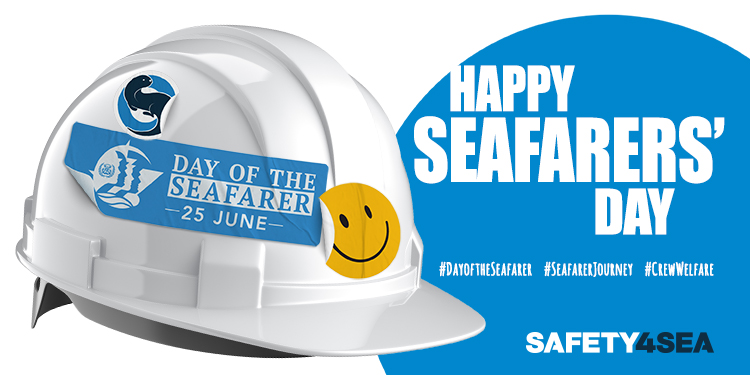






























1-Safety of seafarers is the essential onboard ship , the responsibility of owners ,operators should provide safety training at port by company safety representative. 2- Safety of mental health of seafarers is connectivity with family and loved one so owners should provide internet system onboard ship free to the seafarers.
3-Kindness & humbleness of the superior personnel by company can make strong mental health of seafarers onboard ship.
4- Seafarers need really respect, courage and timely problems solutions such as salaries, repatriation, medical onboard ship and food from the company .
5- Seafarers also keeping interest in timely rejoining its their job security .
6- Seafarers need mentally fresh on board ship to carried out their job safely and actively.
Access to medical assistance and dental assistance onboard and ashore, Shore leave , connectivity for seafarers onboard (even if paid) and shorter contracts are required to make sailing an attractive career